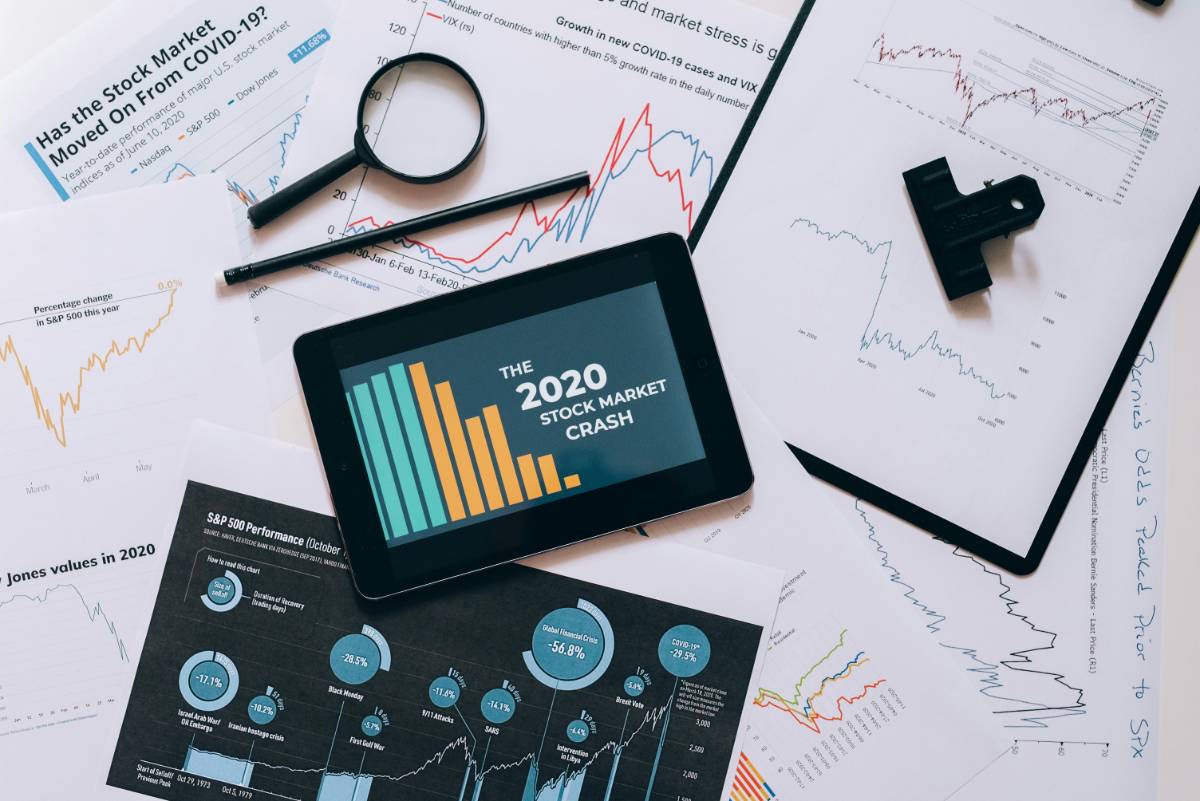
Top Financial Planning Tips for 2024
 By Anita Singh
By Anita SinghAs we head into 2024, financial planning remains as crucial as ever. Whether you’re looking to boost savings, make smart investments, or prepare for retirement, having a solid financial plan is essential. Here are some practical tips to help you navigate the financial landscape in the year ahead.

Reevaluate Your Budget Regularly
Start by examining your current budget and adjusting it to reflect your goals for 2024. By tracking monthly expenses and cutting unnecessary costs, you can improve your cash flow. Regularly revisiting your budget allows you to accommodate any changes in income or expenditures that arise throughout the year.
Prioritize Emergency Savings
Having an emergency fund is more critical than ever. Aim to save enough to cover at least three to six months' worth of expenses. This financial cushion provides a safety net in case of unexpected costs or income disruptions. Consider using a high-yield savings account to keep your emergency fund accessible and growing.

Invest with a Long-Term Perspective
While markets may fluctuate in the short term, adopting a long-term investment strategy can yield more substantial returns. Diversify your investments across various asset classes, such as stocks, bonds, and real estate, to spread risk. Staying consistent and avoiding impulsive decisions helps maximize your portfolio's growth over time.

Embrace Retirement Planning Early
If you haven't started planning for retirement, 2024 is the perfect time. Contribute to retirement accounts like a 401(k) or IRA to benefit from tax advantages and compound interest. Reviewing your retirement goals annually can help you stay on track and adjust your contributions based on your financial situation.
Manage Debt Effectively
Paying down high-interest debt should be a priority. Create a debt repayment plan and focus on clearing credit card balances and personal loans as quickly as possible. Reducing debt not only improves financial stability but also frees up funds for other important goals, such as investing or saving.
You might also like
1. The Role of Cryptocurrencies in the American Financial System2. Smart Ways to Save for Your Child’s Education3. How to Build Wealth: Investing for Beginners4. Swing Trading vs. Scalping: Which Strategy Works Best?Stay Informed on Tax Changes
Tax laws are constantly evolving, and staying informed on changes can help you maximize deductions and credits. Consulting with a tax professional can be valuable, especially if you have a complex financial situation. Being proactive with tax planning enables you to keep more of your hard-earned money.

Consider Working with a Financial Advisor
For those looking to make more informed financial decisions, a financial advisor can offer personalized guidance. From investment strategies to retirement planning, a qualified advisor can help create a comprehensive plan tailored to your needs, making financial planning more manageable.
Conclusion
Effective financial planning in 2024 is all about setting clear goals and taking actionable steps. By creating a robust financial plan and revisiting it regularly, you can navigate the year with confidence, knowing you're prepared for both expected and unexpected financial situations.
About the author
 By Anita Singh
By Anita SinghAnita Singh is a seasoned finance writer with over 8 years of experience helping millennials and Gen Z take control of their money. With a background in economics and a passion for demystifying complex financial concepts, Ananya shares actionable tips on budgeting, investing, and building long-term wealth. Her mission is to make financial literacy accessible, relatable, and empowering — no jargon, just smart money moves.
More like this

Stock Buybacks: How They Influence Share Prices
Stock buybacks have become a common strategy for companies looking to boost share prices and reward investors. Understanding their impact can help investors make informed decisions.

Meme Stocks: Are They Making a Comeback?
Meme stocks took the financial world by storm in recent years, driven by online communities and retail investors. As market conditions shift, many wonder if these stocks are making a comeback.

Dividend Stocks vs. Growth Stocks: Where’s the Best Opportunity?
Investors often face a crucial decision when building their portfolios: Should they invest in dividend stocks for stability or growth stocks for higher returns? Understanding the differences can help in making the right choice based on financial goals and risk tolerance.

How Geopolitical Events Affect U.S. Stock Performance
Geopolitical events have a significant impact on the U.S. stock market, influencing investor sentiment, market volatility, and sector performance. Understanding these effects can help investors navigate uncertainty and make informed decisions.

AI and Automation: The Next Big Disruptors in the Stock Market
Artificial intelligence and automation are transforming industries, and the stock market is no exception. These technologies are reshaping investment strategies, trading mechanisms, and market dynamics at an unprecedented pace.

S&P 500 vs. Nasdaq: Where Should You Invest?
Investors often compare the S&P 500 and the Nasdaq when deciding where to allocate their funds. Understanding the differences between these indices can help you make a strategic investment choice based on your risk tolerance and financial goals.

Why Tech Stocks Are Leading the Market Again
Tech stocks are once again at the forefront of the market, driven by innovation, strong earnings, and investor optimism. As companies in the sector continue to expand their influence, understanding the reasons behind this surge can help investors make informed decisions.

The Impact of Federal Reserve Policies on the Stock Market
Federal Reserve policies play a crucial role in shaping the stock market. Interest rate decisions, quantitative easing, and regulatory measures directly impact investor sentiment and market performance. Understanding these effects can help traders and long-term investors navigate the evolving financial landscape.

Top Performing Stocks on Wall Street This Quarter
The latest quarter on Wall Street has seen significant movements, with some stocks outperforming expectations while others struggled to keep up. Understanding these trends can help investors make informed decisions moving forward.

U.S. Stock Market Outlook: What to Expect in 2025
As we move into 2025, investors are looking for insights into the U.S. stock market's potential trajectory. Market trends, economic policies, and global events will all play crucial roles in shaping investment opportunities.

Market Volatility: Should Investors Be Concerned?
Market volatility is a common concern for investors, especially in uncertain economic conditions. While fluctuations in stock prices can be unsettling, understanding the factors behind market swings can help investors navigate uncertain times with confidence.

Tech Stocks to Watch: Are We in Another Boom?
The technology sector has been a driving force in the stock market, and recent trends suggest another potential boom. With advancements in artificial intelligence, cloud computing, and semiconductor innovation, investors are eyeing key tech stocks for future growth.

How Federal Reserve Decisions Are Impacting U.S. Stocks
The Federal Reserve plays a crucial role in shaping the U.S. stock market. Interest rate adjustments, monetary policy shifts, and economic outlooks set by the Fed significantly influence market trends and investor sentiment.

Top Gainers and Losers on Wall Street This Month
The stock market is constantly shifting, with certain stocks outperforming while others struggle. This month, Wall Street has seen significant movements in both directions. Here’s a look at the top gainers and losers.

Latest Trends Shaping the U.S. Stock Market in 2025
The U.S. stock market is evolving rapidly, with new trends shaping investor strategies and market movements. Understanding these trends can help investors make informed decisions in 2025.

Emergency Funds: Why They’re Essential and How to Build One
An emergency fund is a crucial aspect of financial planning, providing a safety net for unexpected situations such as medical emergencies, car repairs, or sudden job loss. Having a well-established emergency fund can reduce stress and prevent you from going into debt when life’s unexpected events occur. In this article, we’ll explore why emergency funds are essential and how you can start building one today.



